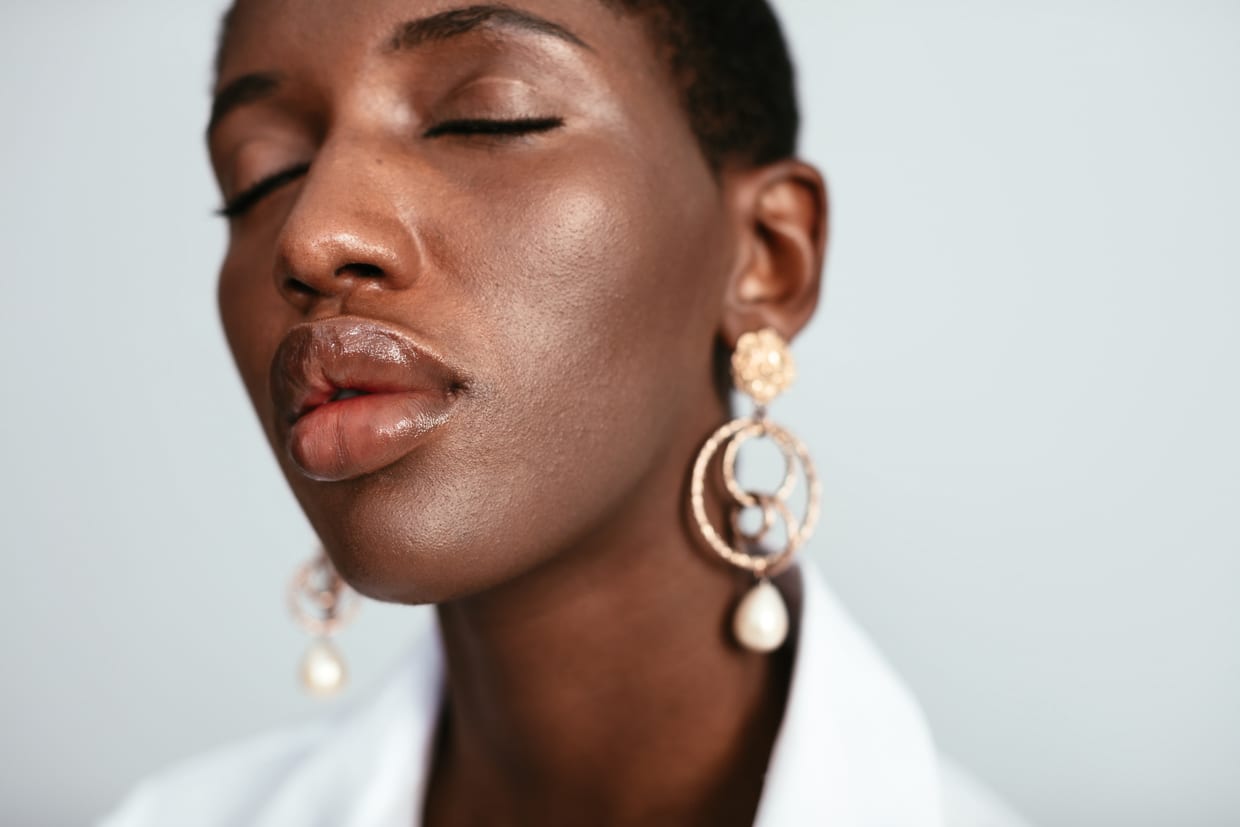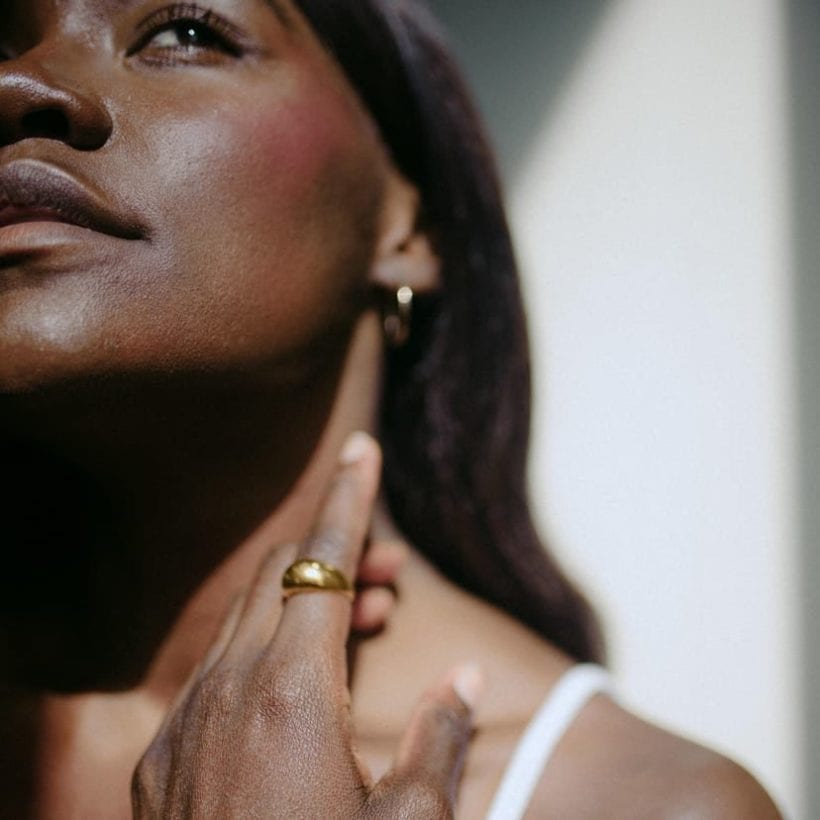On May 31, what started off as a peaceful protest in downtown Chicago had quickly turned violent in a matter of minutes. Then the riots and looting started to escalate and you could hear the city in an uproar. People were so outraged and tired, that they started to take matters into their own hands. As a Black business owner, my mother was nervous once she heard that the looting had spread to the Southside. She immediately called my dad and begged him to close the restaurant and without hesitation, he disagreed and said, “We have to stand for something.”
To take my mind off the chaos occurring outside, I turned on the TV and immediately saw the news and became overwhelmed with the constant live updates. I then went on my phone only to find those same updates on Twitter with accompanying traumatizing videos. I was overwhelmed with emotions and I couldn’t pinpoint how I was feeling. I was not sure how to deal with everything that I was digesting. The only immediate solution I could think of was to close my eyes. I went into a deep sleep hoping to escape reality only to experience a nightmare of a home invasion. I couldn’t even find peace in my dreams.
I couldn’t even find peace
in my
dreams.
Once I woke up, I realized I did not have a solution on how to cope with all of this and talking to someone about it or seeking professional help never really crossed my mind. There is no secret that mental health and therapy is not as accepted nor normalized in the Black community as it should be. You will often be pegged as “crazy” or that something is “wrong” if you want to see a therapist.
I have only seen a therapist once after unexpectedly losing my job. I wanted to make sure it was a Black woman. Interesting fact – the APA found that in 2013, white people made up 83.6 percent of active psychologists and only 5.3 percent of psychologists were Black/African-American. Although I found my session to be useful, at the time, I did not have health insurance and I had to pay out of pocket. I was unable to keep up with the payments, so I stopped going.
Let’s rewind to why these protests, riots and looting all started. On May 25, an unarmed Black man, George Floyd, was murdered in broad daylight after officer Derek Chauvin had his knee lodged on Floyd’s neck for 8 minutes and 46 seconds in Minneapolis after being accused of using a counterfeit $20 bill to buy cigarettes. Before that, on March 13 in Louisville, Kentucky, Breonna Taylor, a 26-year-old Black woman was murdered in her apartment by police after a wrongful suspicion of involvement with drugs.
Taylor and Floyd were two of many Black people killed by white police officers this year alone. I began to become desensitized by the stories I would hear on the news because of how frequently it happened, which I later found out is a form of trauma. I knew that there was something that needed to be done instead of continuing to watch our people die by the hands of a system that is supposed to protect us. “Us” means human beings and not Black people, because the American municipal system was never designed to protect Black people.
The better question is, how do we as a Black community — as Black women, cope with all of this trauma? Not to mention, all of this is happening at the height of a global pandemic. I reached out to Black women therapists who help their patients cope with these issues every day.
How We Can Help Ourselves
I am just going to go ahead and say it: There is not an easy fix to deal with the trauma, especially the cultural trauma that we have endured as Black women for centuries. When it comes to how to “cope” with all of this, there is a ton to unpack here.
The term cultural trauma means, “The history of human rights violations against many minorities which has resulted in cultural trauma, a legacy of adversity, pain, and suffering among many minority group members” (Comas Dias, Multicultural Psychotherapy, 2014). Over time, Black women have endured countless acts of cultural trauma such as rape, separation of families, being over-sexualized and physical, verbal and mental abuse just to name a few.
https://www.instagram.com/p/CBLfgF4h5NO/
Lauryn Payne M.A, QMHP said, “There isn’t a five-step solution to a problem that is so entrenched in our history, in our being. But there are actions we can take to defy this stigma and begin to normalize therapy in the Black community. We can advocate and use our voice to demand social justice, equality and equity when it comes to mental health. We need more mental health facilities in our communities with affordable costs. In addition, we need more therapists of color, therapists who look like us. I will continue to update my knowledge on mental health in real-time in order to best serve our communities.”
Crystal C. Joseph, LCPC, LPC, ACS, a Licensed Clinical Professional Counselor said, “The definition of cope, suggests the ability to deal with something ‘effectively’ or ‘successfully.’ The only way this can be done is through the reform and dismantling of systemic racism. No one can be effective in an environment built against them. We are managing or mitigating the barrage of imagery associated with police brutality and racial injustices. Coping, not so much…Black women have absorbed this as a norm.”
https://www.instagram.com/p/B3TV7XbAoP9/
Although there is not one thing that we can do to become easily healed, fortunately, all hope is not lost. According to Natalie Malone, an emerging scholar in racial trauma, Black women, spirituality and sexuality and third-year doctoral candidate at The University of Kentucky, “There are many tools available for Black women to consider adding to their coping toolkit.”
While this is not an exhaustive list, Black women may consider the following:
- Body sensory awareness activities (e.g., identity affirming yoga and meditations for healing racial trauma)
- Limiting media consumption or shielding
- Prayer or other spiritual techniques
- Practicing resistance (e.g., receiving pleasure, laughing, dancing)
- Building support groups or contacting a therapist
- Practicing self-care and engaging in activism
Malone said, “I find the most powerful coping mechanisms to be conventional practices we [Black women] already use. For example, sometimes, it is healing for Black women to be in community with each other or share space in silence. This act of solidarity communicates, “I see you, and I am with you.” Resisting the people, messages, and practices that deny Black women peace, joy, worthiness, and value. White supremacy and anti-Blackness tell Black women they cannot be happy, laugh and experience a pleasure. Reclaiming these rights is a coping mechanism few Westernized therapeutic practices employ with clients – specifically, Black women. Discussing pleasure worthiness activities and re-introducing Black women clients to play is extremely effective.”
How to Unpack Our Reactive Behaviors
When it comes to dissecting our emotions, it is important to know exactly what makes us upset, which leads to identifying our triggers.
Crystal Joseph asked, “Is it a person, a place, a situation? Even a smell. Once you know what bothers you, we can unpack the why and how to manage the trigger. Sit with your feelings. It’s ok to feel. Sometimes numbness or apathy are present. Other times rage or compassion. Sit with it. Verbalize it. Sing it. Draw it. Get it out. Don’t suppress it. Boundaries are to protect yourself and what is coming over that line. A boundary can be as opaque and transparent as a brick wall, or it can be low and cute like a white picket fence. You decide.”
Dr. Ebony Butler, a food relationship strategist said, “Welcome the feelings, without dismissing or wishing them away…I would encourage [my] clients to label the emotion they are experiencing. Once labeled, identify what that emotion is communicating and what the client needs in response to that emotion.”
https://www.instagram.com/p/CBEZx7HhttM/
While I initially did not understand why my people were looting and rioting in our own communities when our resources were already limited, it was not until I spoke with Dr. Jinnie Cristerna, Clinical Social Work/Therapist, LCSW, CHT, RhD that I got a better grasp on reaction to anger. She explained a scenario of a fight between a married couple. When the woman is upset, she stereotypically will break dishes or objects even if they are her own to release that anger.
“If you think about rioting and that level of frustration where we would break your own things because that’s how angry you are, that’s something we can all relate to. That’s something we can all understand, even if we haven’t done it. You would take your own dishes and throw them and break them,” Cristerna said. “We start to look at why people do what they do. It’s not about supporting it. It’s about understanding it. I can understand why people do what they do, and this is the power of allowance. I allow you to be who you are, and you allow me to be who I am. At some point, there’s going to be a reconciliation of that. That happens so much faster when we allow people to be who they are. What we’ve done in this country is resist allowing people to be who they are, allowing them to be free. This is why we’re where we are.”
Understanding your emotions is very essential when it comes to healing. She said, “The opposite of anger is passion. If you take that anger, if you’re connected, tuned into it, and you identify what you’re thinking like it was a feeling, there’s a thought, and now there’s a behavior. You’re seeing people starting to wake up and now they’re responding.”






